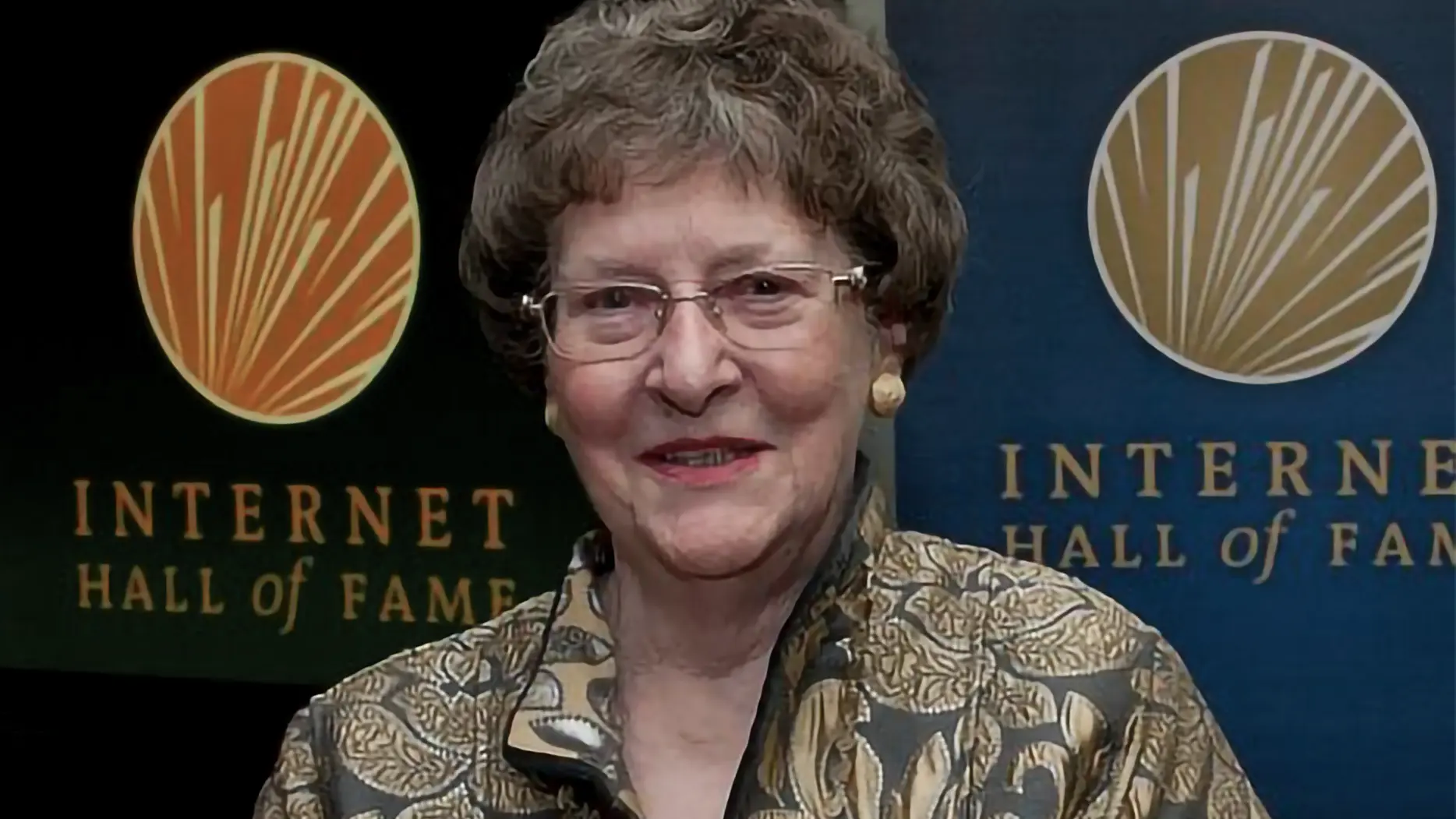


|
||
|
||

It was my pleasure to recently present the Computer History Museum’s Fellow Award to Elizabeth “Jake” Feinler. In this short article, I want to share my introduction to Jake and her work with you.
Wikipedia tells us that Jake’s story is a common tale of distraction and unfulfilled dreams. But not all such tales are sad. Elizabeth “Jake” Feinler was aiming for a PhD in biochemistry at Purdue University. She took what was intended to be a short break to earn some money at Chemical Abstracts in Columbus, Ohio. Her work there was focused on indexing chemical compounds. The distraction became permanent. In 1960, she joined SRI’s Literature Research Division to help develop the Handbook of Psychopharmacology and the Chemical Process Economics Handbook.
A dozen years later, Doug Engelbart recruited her to join his Augmentation Research Center (ARC). Her first task was to write a Resource Handbook for the first demonstration of the ARPANET at the International Computer Communication Conference. By 1974, she was the principal investigator who helped plan and run the new Network Information Center (NIC) for the ARPANET.
What Wikipedia doesn’t say is that Jake embodied a unique and powerful combination of three attributes. She had, of course, the orientation and skill of a professional information scientist. And, as is evident from her long history of accomplishments, she had tremendous zeal and energy. Less well documented but enormously important, she embodied a deep set of humanitarian values. In an era when there were few women and minorities in technical fields, Jake was not only uncommon herself, but she also encouraged, mentored and included women and minorities in her group.
Englebart’s project was visionary and groundbreaking. The mouse was invented there, and they pioneered the use of structured text and links, perhaps the most pervasive technology we use today. It was thus natural that that project was included in the original set of four Arpanet sites.
Now the Arpanet was a peculiar project. The lower part of the Arpanet—the lines and routers that we now call the subnet—was carefully designed and built. The upper part—what the host computers would say to each other—was left to the users to figure out. Users in those days were primarily students and comparable staff. Charley Kline, Jon Postel, Vint Cerf and I at UCLA were examples. Bill Duvall, Charles Irby, Jeff Rulifson and others at SRI were our counterparts. UCSB and Utah had similar contributors.
Equally unspecified was any sort of organization of contact information, reference notes, etc. But Jake was there. Over the next several years Jake was at the center of organizing contact information, reference material, distribution of materials across the net, and keeping up. Her compilation of contact information became the core of what Internet users all around the world would refer to as “Whois.”
More than 50 years later, Jake’s seminal work continues to be a core part of the Internet infrastructure. New issues involving the accuracy of the contact data and proper control and use of this data has emerged as one of the current challenges in the Internet. When I created a project to deal with these issues, it seemed natural to name it “Project Jake.” She returned the favor by asking me to introduce her at the award ceremony, and I was honored to do so.
The CHM Fellow Award event has been recorded as a permanent part of CHM’s collection further reinforcing Jake’s important place in history. The “Jake” Feinler segment starts at minute 52.
Sponsored byRadix

Sponsored byCSC

Sponsored byIPv4.Global

Sponsored byWhoisXML API

Sponsored byVerisign

Sponsored byDNIB.com

Sponsored byVerisign
